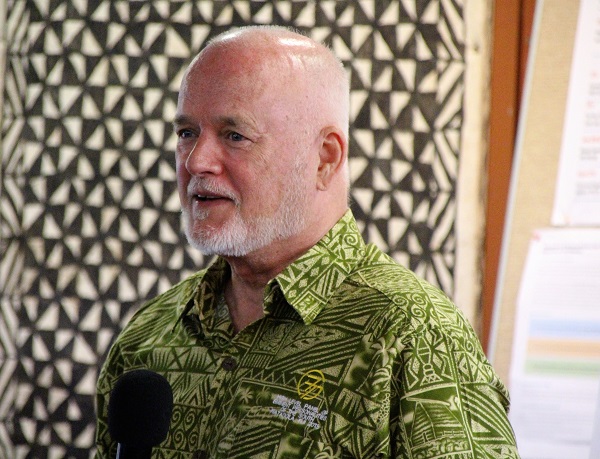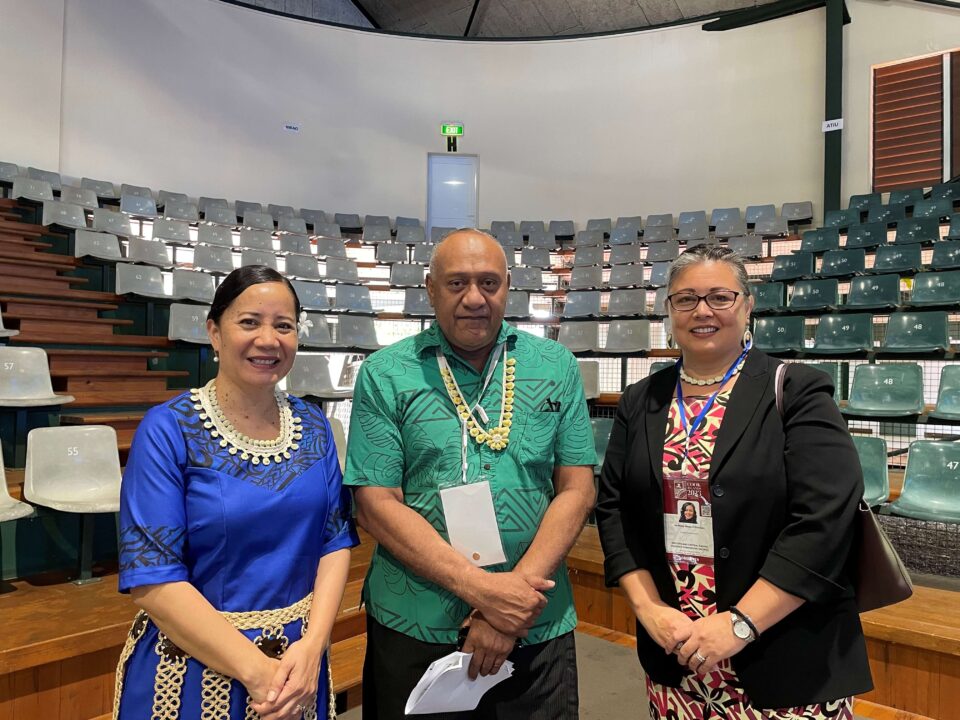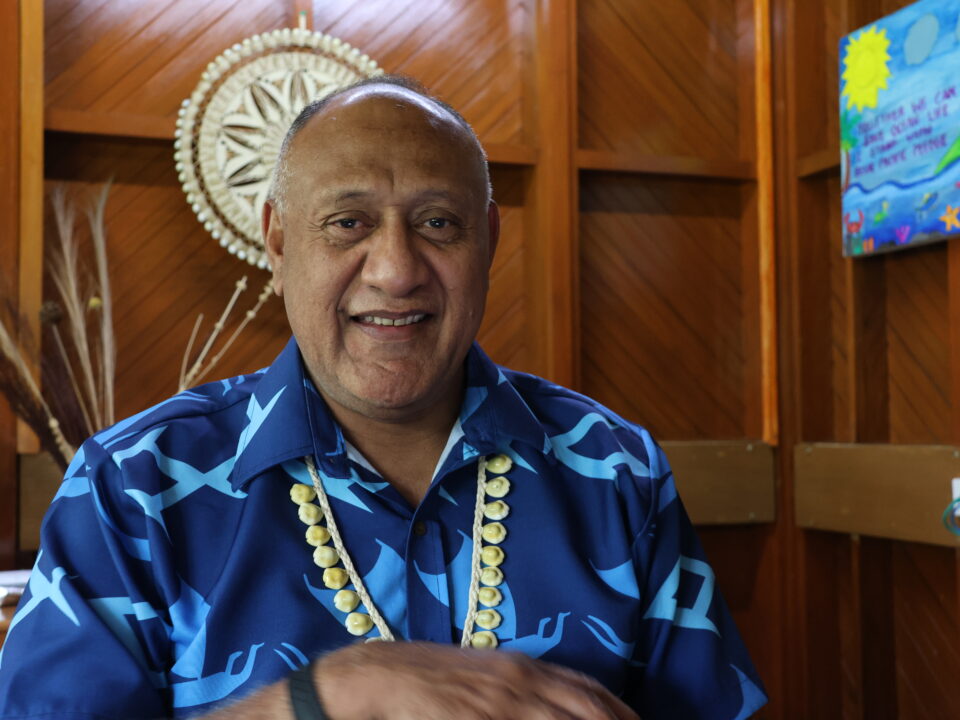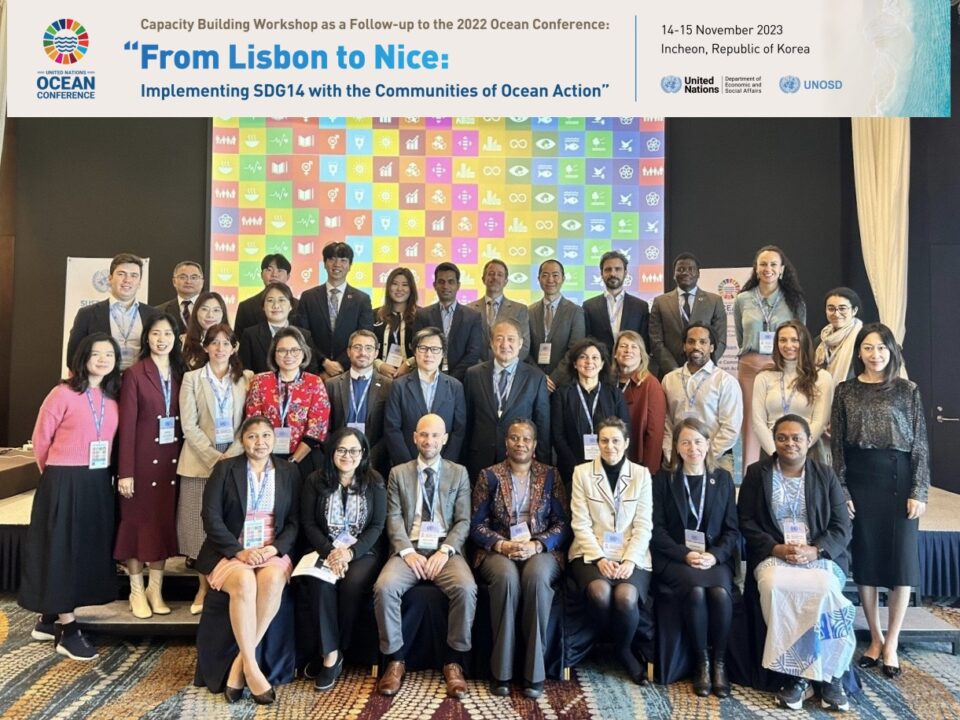
Address by Ambassador Peter Thomson,
UNSG’s Special Envoy for the Ocean,
at Pacific Ocean Alliance meeting,
PIF, Suva Fiji, 3 October 2019
Ni bula vinaka. Welcome to Suva everyone. Even though I flew in from London yesterday and spend my days in all four corners of the world promoting Ocean Action, it gives me great pleasure to welcome you here, because this is my home town and has been for five generations of my family.
Vinaka vaka levu to Secretary-General Dame Meg Taylor, and OPOC Secretariat, for gathering us for this timely meeting of the Pacific Ocean Alliance. I say “timely” because the UN Ocean Conference to be held in Lisbon, 2 to 6 June 2020, is only eight months away. The Pacific Islands set the bar high at the UN Ocean Conference held in New York in 2017 and the world is looking to us for more of the same in Lisbon.
You’re in good hands with OPOC. It’s run by a modest man who in the years he served in New York, led four resolutions to consensus adoption in the UN General Assembly. That is a rare achievement for any UN diplomat, and such leadership roles at the UN are only bestowed upon diplomats whom their peers regard with complete trust and respect. I should mention that one of those resolutions was the mammoth task of mandating the existence of the first UN Ocean Conference.
Secretary-General, Excellencies, Ladies and Gentlemen,
Let us not forget what the Secretary-General of the United Nations, Antonio Guterres, said to Pacific Island Leaders at their meeting in New York last week. These were not words uttered lightly. The Secretary-General said that the Pacific Island Leaders have a unique moral authority to speak out on the Climate Crisis.
Here in Suva, I would go further a step further and say that Pacific Islanders also have a moral obligation to act on Climate and Ocean Change. We have this moral obligation to the world as stewards of the planet’s largest expanse of Ocean; but more particularly, and I feel this in my bones as a grandfather, we have that obligation in order to keep faith with the Pacific generations whose lives stretch out ahead of us into the great unknown. Stewardship is a hollow concept if we fail them.
Secretary-General, Excellencies, Ladies and Gentlemen,
It’s truly inspiring to see the high levels to which Pacific Islands leadership on Ocean issues aspires and is being exercised. This is readily apparent on the world stage. Back here in the Pacific, our regional organisations, SPC, FFA, SPREP and USP, coordinated by OPOC, are moving to meet those aspirations. And national governments are moving to put laws in place to enforce them.
Fiji’s recent EEZ announcements, including 100% marine spatial plan for its EEZ, have been widely observed and will no doubt be emulated by many. Vanuatu led the charge last year by banning single-use plastics. I was proud to be a Pacific Islander in at the SPREP Ministerial in Apia last month when Minister after Minister announced the single-use plastic bans put in place in their countries and/or being now the process of legislation.
And I was heartened to be at the first conference of the Pacific Islands Parliaments Group in Papeete last month to witness the adoption of the Taraho’i Declaration with its strong calls for Pacific Parliaments to promote responsible and sustainable fisheries, fight against illegal fishing, reduce marine pollution, establish marine protected areas, and integrate Climate and Ocean agendas.
Secretary-General, Excellencies, Ladies and Gentlemen,
Do not imagine the battle to end the Plastic Plague which has inundated the Ocean, will be an easy one to win. The plastic industry is planning and investing for 40% growth over the next decade. Like the tobacco industry before it, the plastic industry is aware of the public’s growing dismay. Remedial action is beginning, but greenwashing is also growing.
Many big economies have yet to act on the message. Last week in New York I was shocked by the proliferation of single-use plastic in shops and streets. On days when strong westerlies whip up Manhattan’s urban detritus, white plastic bags catch in the trees along JFK Expressway like strange white fruit. Of course the rest of these bags went into the East River and out into the Ocean to join the plastic tide that has permeated the Ocean’s fundament, littering beaches and forming great oceanic surface-gyres.
Even more perniciously, that plastic flotsam is breaking down into plastic microfibres, that make their way in virtually invisible legions, propelled by ocean currents and gravity, from the planet’s icy poles to the bottom of the Mariana Trench. They have permeated the food chain. We are eating them. They are crossing our blood-brain barriers. Again, for our children and grandchildren, we have a moral obligation, to take on the battle against plastic pollution. Tabu soro, no surrender on this.
Secretary-General, Excellencies, Ladies and Gentlemen,
SDG14.4, by 2020, calls upon us to effectively regulate harvesting and end overfishing, illegal, unreported and unregulated fishing and destructive fishing practices. It calls upon us to implement science-based management plans in order to restore fish-stocks in the shortest time feasible, at least to levels that can produce maximum sustainable yield as determined by their biological characteristics.
I would make two points here. FAO’s last SOFIA report showed that we are over-fishing 33% of the Ocean’s fish-stock, in other words, driving them to the lip of extinction. It is not expected that next year’s SOFIA report will see much change in that overall statistic.
The second point is that the South Pacific is performing well in the area of implementing science-based management plans for our fish-stocks. Our regional institutions should take a bow for this performance; but not bow for too long, for we and they know all too well that the challenges ahead are immense.
Illegal fishing, much of which occurs in the Pacific Ocean, steals some $23 billion worth of fish annually. This theft is from governments, from communities, from science and from Nature and we must be united in bringing this scourge to an end. The best weapon we have of doing so is FAO’s Port States Measures Agreement (PSMA) and once every Pacific country has ratified it, we can close the Pacific to illegal fishing. Most of the Pacific Rim countries have already ratified PSMA, as have French Polynesia, Fiji, Palau, Tonga and Vanuatu, with others moving to do so. Yes there are obligations of enforcement, but they are greatly outweighed by the benefits of ending illegal fishing.
Next week I will be in Geneva to continue SDG14.6’s campaign to end harmful fisheries subsidies. It is calculated that some $20 billion of the public’s money are given annually as fisheries subsidies, over 80% of which go to industrial fleets. Some of the latter are out there chasing diminishing fish-stocks, some are engaged in illegal fishing. What kind of insanity is that!
We are calling for the $20 billion to be spent instead on assisting coastal communities face the great challenges that are coming with Climate and Ocean Change. The World Trade Organisation has the responsibility of bringing these subsidies to an end, but negotiations in Geneva are making slow progress.
Secretary-General, Excellencies, Ladies and Gentlemen,
What I find deeply attractive about the Pacific Ocean Alliance is its multi-stakeholder membership and its emphasis on cross-sector cooperation in pursuit of the best outcomes for regional issues. In today’s world, we sorely need inclusiveness and partnership. And we need to trust each other. This is the spirit of both the UN Ocean Conferences and the SAMOA Pathway.
I urge the Pacific Ocean Alliance to concentrate on solutions to the challenges we face. It is becoming clearer that the Ocean is a critical element of the global solutions to Climate Change. Last week at the Climate Action Summit in New York, the High-Level Panel for a Sustainable Ocean Economy released an interim report setting out five Ocean-based Climate Action areas (Ocean-based renewable energy, transport, coastal ecosystems, fisheries, carbon storage) which if fully implemented could deliver one-fifth of the annual GHG emission cuts needed by 2050 to stay below 1.5˚Celcius.
These findings and other Ocean issues will have a central place at the Blue COP in Chile in two months’ time.
Secretary-General, Excellencies, Ladies and Gentlemen,
The UN Decade of Ocean Science for Sustainable Development will get underway in 2021. The launching of it at the UN Ocean Conference in Lisbon next year will be boosted by the fact that the conference’s central theme is Scaling up Ocean Science and Innovation.
We have much to gain and give to the UN Decade of Ocean Science. Pacific Islands are dotted like ready-made observing stations around the Ocean. We must seize what is offered by the Decade through partnerships to strengthen our regional institutions, fill the gaps in our data, and train our young people.
To young Pacific Islanders I would say, this is a burgeoning career opportunity, so get involved. Its not rocket science, its Ocean Science; in other words, it’s a field that’s far more important to humanity’s survival than rocket science and you are naturally endowed by having the Ocean all around you.
Secretary-General, Excellencies, Ladies and Gentlemen,
In conclusion, let me say that we cannot have a healthy planetary ecosystem without a healthy Ocean ecosystem, and yet at times it seems humanity is doing its best to destroy the latter. Our Greenhouse Gas emissions are changing the chemistry and temperature of the Ocean to the great detriment of life therein. We dump our pollution, industrial, agricultural and sewage, into the rivers and coastal waters. We wilfully overexploit the resources of the Ocean.
This has to stop and the Pacific Islands have the moral authority, and I say again, the moral obligation, to lead the way, through global messaging, global action, and walking the talk back here in the islands. Of course, this is true for the question of adding any new stressors to the Ocean’s ecosystem, and we must view decisions on them through this lens of morality.
We have a clear plan: to stay faithful to the Paris Climate Agreement and the UN’s 2030 Sustainable Development Goals; in particular, to implement the targets of SDG14, the Ocean Goal that requires us to conserve and sustainably use the Ocean’s resources. Let sustainability be the over-riding principle in our decision-making, so that we do indeed meet our moral obligations to our grandchildren.
In the Pacific we are blessed with strong regional institutions with Oceanic responsibilities. Let us strengthen them further, and bring them into partnerships for the common good with philanthropies, NGOs and other friends from beyond our shores.
And let us back the work of OPOC and the Pacific Ocean Alliance. We have something special here, so let’s treasure it as we set out on the road to Lisbon and the process of restoring balance and respect to humanity’s relationship with the Ocean.
Thank you for your attention.
Oqo saka na kena levu.



